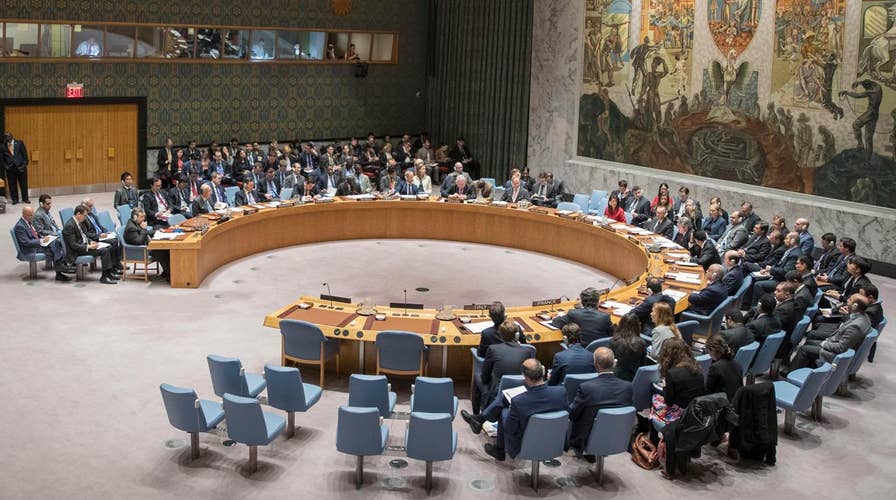UN fails to pass resolution condemning Syria chemical attack
Russia votes no, while China abstains from voting
A vote by the U.N. Security council on a draft resolution to condemn the chemical weapon attack in Syria failed Wednesday with a veto by Russia, but fellow member China abstained, a sign that talks with President Trump last week may have had an effect on the superpower.
The draft resolution by Britain, France and the United States called for those responsible for the attack on the Syrian town of Khan Sheikhoun on April 4 to be identified and brought to justice.
The resolution garnered 10 votes in favor, Russia and Bolivia against, and China, Kazakhstan and Ethiopia abstaining.
"With its veto, Russia said no to accountability," said U.S. Ambassador Nikki Haley.
"Russia once again has chosen to side with Assad, even as the rest of the world, overwhelmingly comes together to condemn this murderous regime," she added.
At a press conference with secretary-general of NATO, President Donald Trump praised China for abstaining from the U.N. resolution. China usually sides with Russia in the Security Council, so the move to abstain represented a significant shift for Beijing.
Trump said it was "wonderful" that China abstained and the U.S. was "honored by that vote," which came after he met last week with Chinese leader Xi Jinping and the two spoke by phone Tuesday night.
The president said he's "very impressed" with Xi, adding he thought he means well and wants to help.
Trump added that it was "certainly possible but probably unlikely," that Russia knew in advance of Syrian chemical weapons attack.
The final draft of the resolution included a paragraph that the Russians objected to last week, which stressed Syria's requirement to provide investigators with flight plans and information about air operations on April 4 when Khan Sheikhoun was attacked, names of helicopter squadron commanders, and immediate access to air bases where they believe an attack may have been launched.
Related stories...
Before the vote, Russian Deputy U.N. Ambassador Vladimir Safronkov said the Western draft resolution "does not serve a useful purpose."
He later said the resolution "appointed the guilty party prior to the investigation," which he said is "incompatible with the legal norms."
Safronkov added that the American missile strikes conducted last week were carried out "in violation of international norms."
Haley said the U.S. "takes no pleasure to see Russia isolated on the Security Council."
"We want Russia to use its influence to stop Assad," she added. "Today's vote could have been a turning point."
The Chinese ambassador to the U.N., Liu Jieyi, said the choice to abstain came from some elements of the resolution could have been "amended.'
"It is our long standing hope that the security council can speak with one voice on Syria," he said.
Jieyi added that a political solution is the "only way forward."
Earlier in the day, the U.S. and Russia separately agreed to work together on an international investigation of the Syrian chemical weapons attack that prompted retaliatory American missile strikes.
The Trump administration blames Russia's ally, Syrian President Bashar Assad, while Moscow has repeatedly said Syrian rebels are responsible.
After a day of discussions with U.S. Secretary of State Rex Tillerson, Russian Foreign Minister Sergey Lavrov said the former Cold War foes agreed a probe of events in northern Syria was necessary.
Russia has claimed rebels dispersed whatever chemical agent was found, which the Trump administration calls a disinformation campaign.
The news conference came after Russian President Vladimir Putin met the top American diplomat for almost two hours to see if they could rescue relations between the world's mightiest military powers.
Sen. Lindsey Graham, R-S.C., said in a statement it was "no surprise to anyone that the Putin regime would shield the Assad regime from accountability" following the vote.
"To expect one war criminal to do anything other than protect another is unrealistic," Graham said. “It is now time for Congress to pass sanctions against Putin’s regime for interfering in our election, as well as aiding and abetting Assad’s use of chemical weapons. The United States cannot give Putin a pass on either one of these outrageous acts.”
The Associated Press contributed to this report.

